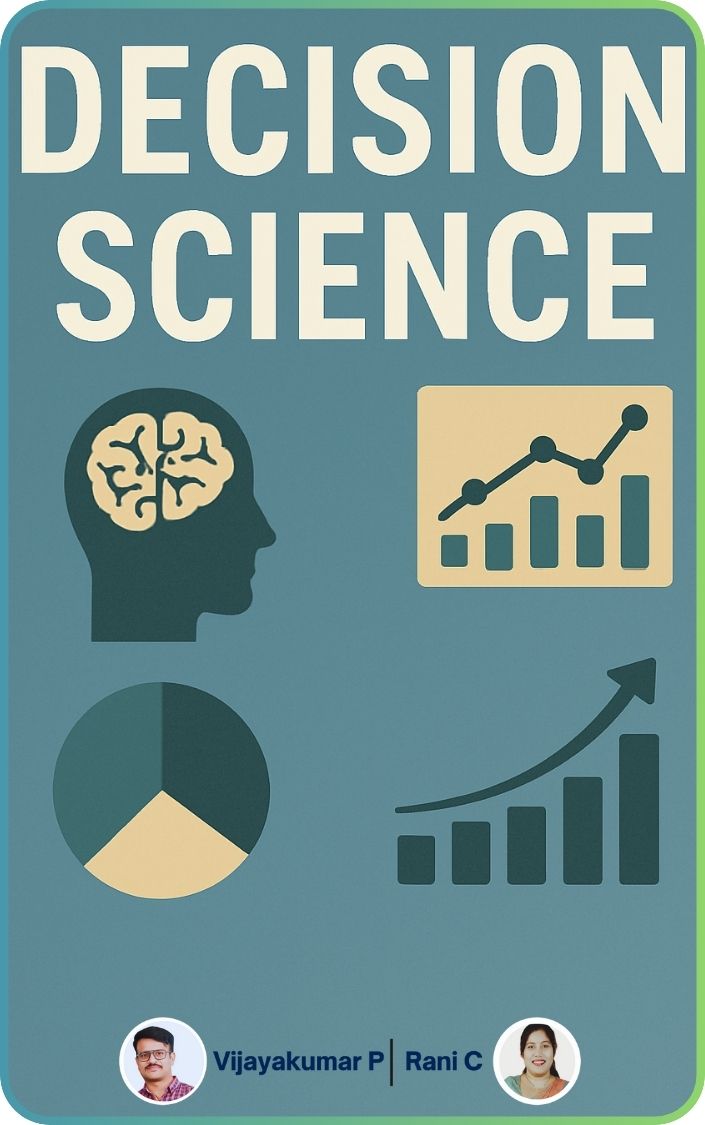Decision Science
Welcome

Decision Science explores the principles and methods that guide effective decision-making in complex and uncertain contexts. It builds on rationality, decision theory, and utility models, supported by probability and quantitative techniques for evaluating alternatives, analyzing risks, and improving outcomes.
The field also incorporates behavioral perspectives, recognizing the impact of cognitive biases, heuristics, and psychological factors, as well as strategic insights from game theory. With the growth of data, decision science integrates analytics, predictive modeling, and machine learning to strengthen evidence-based choices.
Beyond technical approaches, it emphasizes ethics, sustainability, and social responsibility, ensuring that decisions are effective and aligned with broader societal values. This integrated perspective equips students, researchers, and professionals to make informed, rational, and responsible decisions across diverse domains.
Reference books
- Smart Choices: A Practical Guide to Making Better Decisions by John S. Hammond, Ralph L. Keeney, Howard Raiffa.

